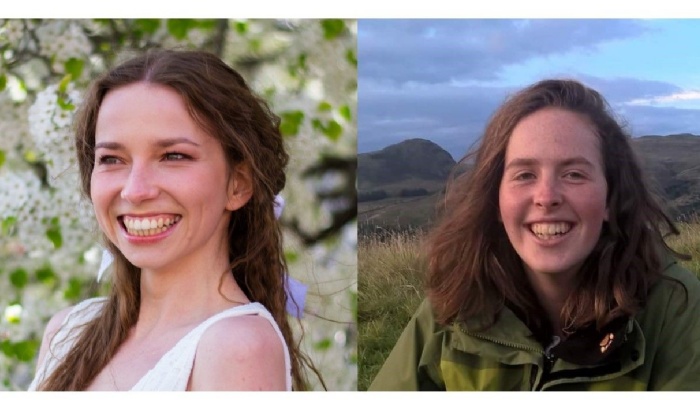Students inspired after talks by zoologist and astrophysicist

Two PhD students at the University of Cambridge, a zoologist and an astrophysicist, brought science to life for students after giving talks on their work and research.
A level physics students and Year 11 triple science students listened to a lecture by Joanna Piotrowska-Karpova, who works at the Institute of Astronomy and Institute of Cosmology and uses light spectrometry to find out more about black holes and evolution of galaxies.
Piotrowska-Karpova, who works at the Institute of Astronomy and Institute of Cosmology and uses light spectrometry to find out more about black holes and evolution of galaxies.
Mrs Piotrowska-Karpova spoke about how light and electromagnetic waves can be used to find out more about space and objects such as super-massive black holes. Students learned how to make their own spectrometer out of everyday objects and had a chance to ask questions both about university life and the space, including ‘What does the space taste like?’.
“I really liked it, it was so cool,” said Year 12 student Kristupas Karkalas, who is hoping to study astrophysics at university. “The astrophysicist was so passionate about what she was saying that it made it more interesting.”
Year 11 triple science students and A level biology students heard from zoologist Mairenn Attwood, a researcher working in Zambia on African birds, specifically cuckoos and drongos and how their behaviour affects each other.
Students explored the topic of camouflage, mimicry, ecology and natural selection. They also gained insight about how to conduct data collection and analysis.
Student Sochi Ajoku said: “It was really interesting to see real-life research from Zambia that is taking place, and hear about the opportunities in research that can be undertaken at university.”
 Miss Attwood also worked with Year 7s, who had a chance to find out more about how animals are adapted to their environment, how birds raise and protect their young and how drongos can protect their nests from cuckoo attacks. Students also found out more about the steps of scientific method and how to form and test your hypothesis.
Miss Attwood also worked with Year 7s, who had a chance to find out more about how animals are adapted to their environment, how birds raise and protect their young and how drongos can protect their nests from cuckoo attacks. Students also found out more about the steps of scientific method and how to form and test your hypothesis.
“We knew that birds live and build nests for their eggs but there is so much more behind how they feed their offspring and protect their young,” commented one student. “I found it particularly interesting to find about how the drongos behave when they see cuckoo birds and attack them even though they are much smaller!”
Year 7 student Daniel B added: “How surprising it is to see how far university can get you! I’m not sure yet what I want to do, there’s too much to pick from. It is helpful to find out more about careers we could have. It just takes one giant leap to fulfil every hope and dream you thought of.”